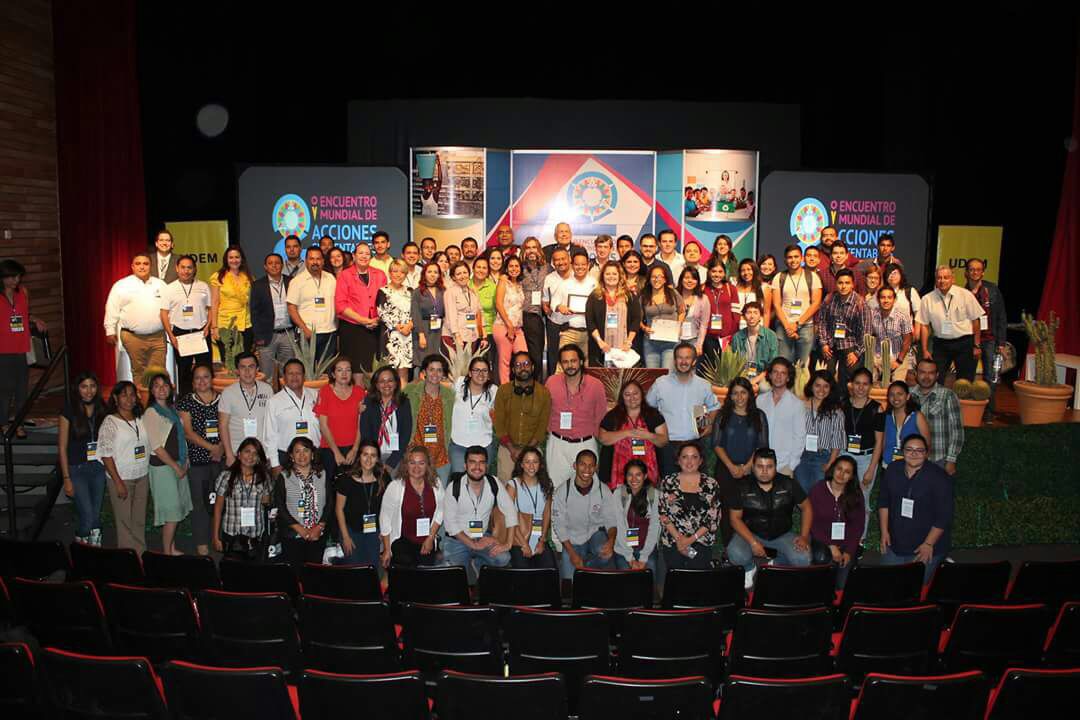
Translating concepts or words into other languages can transform the concepts entirely, or in some rare cases open up another door into ways to describe the nuanced and complex phenomena we work with in the hot-messes of climate change. And by hot-messes I refer to those neo-liberal consequential forces that influence a myriad of social and environmental justice struggles. Recently I visited Santa Catarina in Mexico, 2nd World Encounter on Sustainable Actions: Transforming Complex Futures. I came on the invitation of Ericka Toledo, a passionate dynamic Mexican environmental justice ‘bruja’. Before the conference began we spent some quality time together planning a workshop we would hold after the event, with the aim to explore disruptive pedagogies and what Arjen Wals calls optimal disruption in the context of transgressive and transformative learning (t-learning).
In these conversations Ericka reflected on her first encounter of the term “transgression” in this context. She said that when directly translated into Spanish, transgression usually refers to an act of aggression. As in the traditional English meaning it is seen as an act that goes against a law, rule, or code of conduct; an offence, which in Mexico is usually associated with aggression. Considering this, and knowing that transgression in this context is an emancipatory act and deeply linked to compassion, Ericka has been translating the term into trascender agresión or transcending aggression. Moving beyond aggression as the only means to challenge or dismantle a normative boundary. In this small disruptive act of reframing the term, Ericka created for us both, and the workshop participants a generative explosion of possibilities. Emergent ways that we could explore that transcend aggression in transformations, and when thinking about challenging the static and oppressive boundaries of neo-liberal capitalism and the the suffocating impact of the colonialism.
Ericka has been working on a collaborative global project that is investigating ways in which Education for Sustainable Development (ESD) can meaningfully work with the sustainable development goals, mainly through the ESD expert net. If you haven’t come across them yet, the Sustainable Development Goals (SDGs), also officially known as Transforming our world: the 2030 Agenda for Sustainable Development is a set of 17 "Global Goals" with 169 targets between them. Spearheaded by the United Nations through a deliberative process involving its 193 Member States, the SDGs build on the Principles agreed upon under “The Future We Want” resolution or (Resolution A/RES/66/288).
While the SDGs aim to respond proactively to many challenges we currently face, it has some major inherent problems and has a broad suite of critical flaws. The most obvious contradiction it embodies is that it seeks high levels of global GDP growth, they will inevitably undermine its’ own ecological objectives. It has also been noted that, in relation to the headline goal of eliminating extreme poverty, "a growing number of scholars are pointing out that $1.25 is actually not adequate for human subsistence", and the poverty line should be revised to as high as $5 per day. The goals also ignore local context and promote "cookie-cutter development policies" that make little room available for indigenous knowledge and practices to emerge as leaders in sustainable transformations. The SDGs have also been criticized due to the inherent shortcomings in the very concept of sustainable development and the inability of the latter to either stabilize rising carbon dioxide concentration or ensure environmental harmony.
While there are many things we must be critical of when considering the SDGs, they are the first outcome from a UN conference that has been the least criticized by any major Non-Governmental Organization (NGO), with broad (somewhat cautious) support from most NGOs, if we cast our minds back to the MDGs in contrast, we might remember the huge stink those goals made in the noses of any self respecting sustainable development practitioner. The MDGs dealt with the problems, the SDGs begin to deal with the causes of the problems.
While they are not perfect these goals are the first step in global agreement towards sustainable transformations, and while we might not agree with every goal or their means of implementation, they are something we can work with and choose to make our own. The SDGs are for me a public square we can all meet and begin working together, transcending our aggression, and finding ways to express our own unique approaches to sustainability.
A week later I found myself at the third Transformations (2017) conference in Dundee, Scotland (more about that in another blog post coming). Shaking the jetlag out of my weary brain, I found myself drawing deeper still into the SDGs at a post conference meeting on a new “transformations forum” which is focusing on the SDGs as a site for creative, accelerated and innovative sustainable transformations, it seems that there is a general consensus that we can work within the boundaries of the SDGs and when in doubt transgress these boundaries as we need to in our individual, regional contexts.
Working with the SDGs in this way, is for me a beautiful example of what it means to “Transcend Aggression” and be transgressive in this precious times of hot-messes. We don’t have the time to be critical without some sort of alternative, we need to make things work as best as we can, and not try find the “best practice” or the perfect fit, because these don’t exist in the form we have previously defined them. What we do have is a general consensus and agreement, and a new place to work with conviction, empathy, compassion and urgency.
